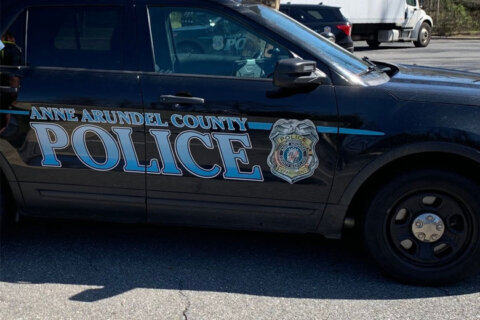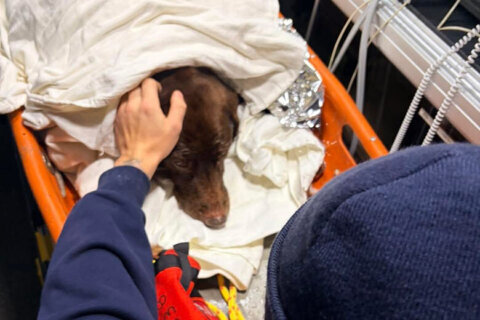Maryland officials approved a measure Wednesday requiring the owner of the container ship Ever Forward to help restore natural oyster habitats as compensation for the effects of the vessel’s in the Chesapeake Bay last year.
The Maryland Board of Public Works on Wednesday approved a wetlands license that requires the shipping company Evergreen Marine Corporation to pay $676,200 for the seeding and enhancement of the bay’s oyster bars to mitigate the effects on the aquatic habitat caused by the container ship M/V Ever Forward’s grounding and refloating.
Ever Forward ran aground March 13 north of the Chesapeake Bay Bridge while it was traveling from the Port of Baltimore to Norfolk, Virginia.
An emergency wetlands license was issued last year after the grounding to allow for dredging to refloat the vessel.
The Maryland Board of Public Works, which is composed of Gov. Larry Hogan, Treasurer Dereck E. Davis and Comptroller Peter Franchot, ratified the emergency license, by requiring Evergreen Marine to mitigate the impacts from the dredging operations.
Fourteen acres of Chesapeake Bay bottom, including 11.5 acres within the boundary of a natural oyster bar, were impacted by the grounding and dredging of the container ship, as detailed in a Maryland Department of Natural Resources report.
Evergreen Marine will pay the Maryland Department of Natural Resources for its enhancement and reseeding of 41 acres of oyster bars to satisfy the mitigation requirement.
Because the impacts occurred within Anne Arundel County, DNR will consider spots within that county as a priority, according to a news release from the Maryland Department of the Environment.
A Coast Guard investigation into the Ever Forward’s grounding in the Chesapeake Bay faulted the pilot tasked with helping the ship navigate the waterway, saying he relied too much on one piece of equipment to navigate and was on his cellphone in the moments before the grounding.
The Maryland Board of Public Works also approved $25 million in funding for an initiative to reduce water pollution at the Conowingo Dam and restore the Chesapeake Bay.
Those funds will be used to tackle the issue of upstream discharges and the lost trapping capacity of the Conowingo Dam through a pay-for-performance approach that encourages private investments and public funding.
The step aims to improve the aquatic habitat and water quality in the lower Susquehanna River and Chesapeake Bay.







